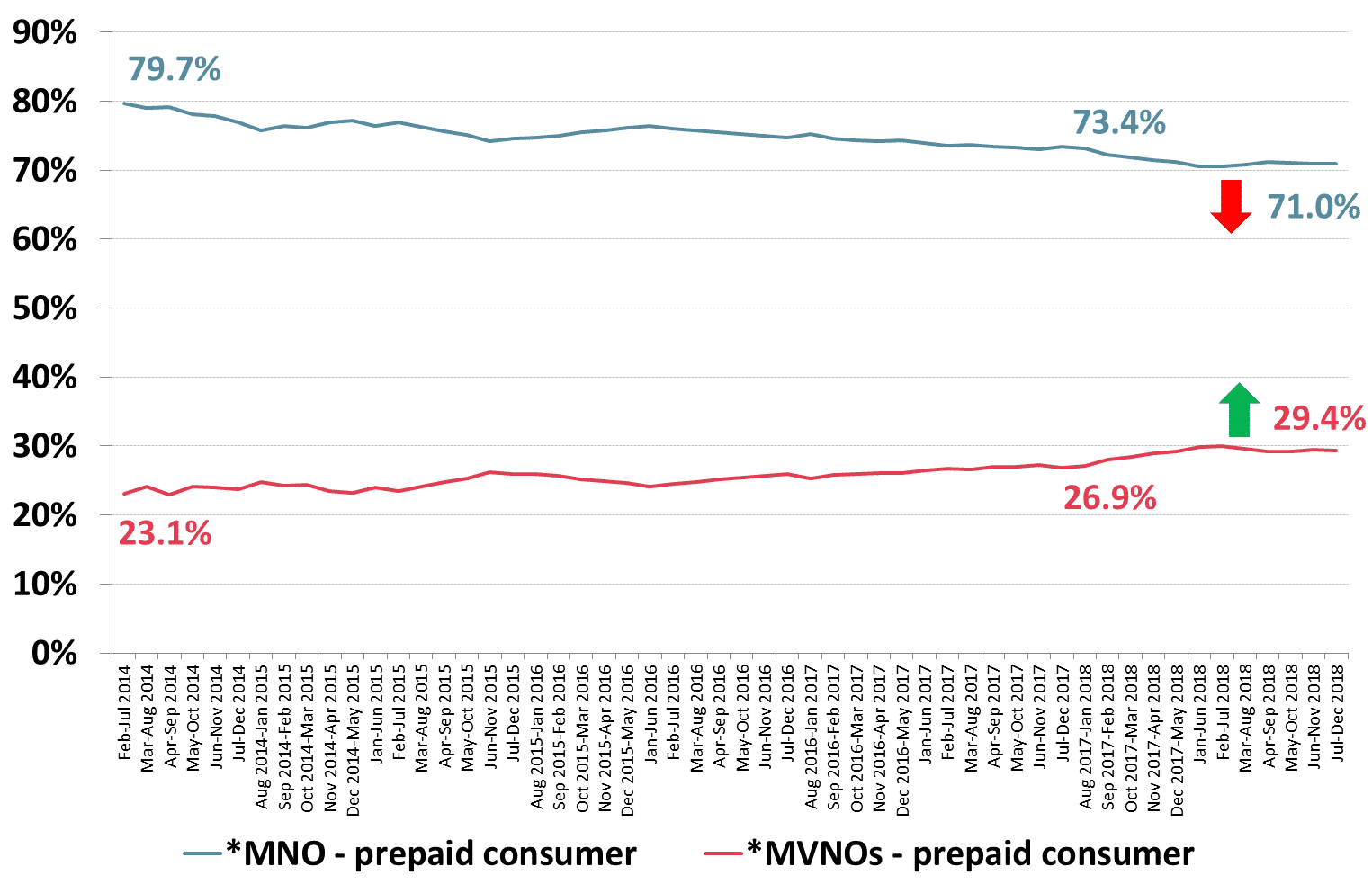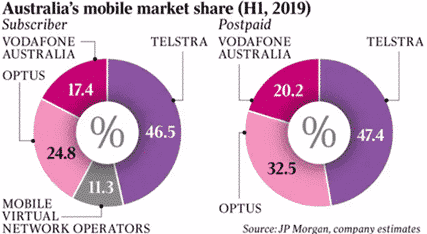Customer satisfaction update for July
- The Roy Morgan Mobile Phone Service Provider Monthly Customer Satisfaction Award for July is out.
- ALDImobile is ahead of the pack for the fourth time this 2019.
- Boost Mobile takes a close second and Belong has makes massive gains.
- Telstra MVNOs round out the top spots, thanks to data-management facilities.
- MVNOs are winning — Vodafone stands alone as the only major telco in the top 5.
- Where is Optus and their MVNOs?
The customer satisfaction numbers according to Roy Morgan
ALDImobile has, once again, snagged the top spot on the Roy Morgan Mobile Phone Service Provider Monthly Customer Satisfaction Award in 2019. This marks the fourth time this year that the MVNO (Mobile Virtual Network Operator) has achieved this feat, placing them on a sure path to win the 2019 Annual Customer Satisfaction Award, barring a major mishap. The MVNO have only won the annual award once before — back in 2015.
Although ahead of the pack, ALDImobile’s customer satisfaction rating dropped a percentage point from the same time last year. The MVNO’s July rating is 83%, slightly edging out second place Boost Mobile, which dropped 8 percentage points to 82%.
Despite those first and second place telcos, there were other notable moves. Belong Mobile made huge gains with a 14% increase in customer satisfaction. The rest of the pack continue with an MVNO dominance as far as customer satisfaction is concerned, with only one major telco in the top five — Vodafone at the third spot with 79%. This shows a continued trend towards Australians’ increasing preference for MVNOs over the big three network providers.
Telstra MVNOs at the top
Telstra fall outside the top 5 for customer satisfaction in July, according to Roy Morgan. In fact, as stated, Vodafone stand alone in the top 5 as far as major telcos (MNOs — Mobile Network Operators) are concerned.
However, MVNOs reselling the Telstra network take the chunk of the top 5 — ALDImobile, Boost Mobile, and Belong Mobile all resell the Telstra network and rank first, second, and fifth, respectively.

MVNOs on the Telstra network dominate the top 5 in customer satisfaction. Source.
Boost Mobile, although coming in second, could have held a first place lead barring their 8 percentage point drop from the same period last year. The MVNO takes a close second instead, remaining strong on customer satisfaction.
Belong Mobile’s 14% increase in customer satisfaction is a huge deal. While the top two leaders lost some steam, this MVNO went the opposite direction from 64% last year to 78% this July. With gains like that, perhaps the telco is on par for the top spot in the near future, if the upward trend continues.
What are Big T doing right?
First, Telstra’s MVNOs are investing in data management facilities such as data vaults available on both Belong and rollover available on Boost as well as international calls inclusions.
Further, Australia is migrating to cheaper phone plans. Since Telstra alone make up half the market, Telstra’s base is migrating from high value/cost Telstra plans to cheaper alternatives on their network, such as Belong and Boost. Having a good service experience is easier in these smaller companies than Telstra’s outdated bureaucracy.
Telstra haven’t made the mistake of beginning a rivalry with MVNOs on their network. Instead, Telstra have done a great job of building and marketing these cheaper, data feature-rich plans from Belong and Boost, nailing an important strategic step. Thus, despite Telstra themselves falling outside the top 5, their MVNOs’ high rankings are enough proof that Big T are doing something right.
MVNOs lead the way
MVNOs resell the major telcos’ networks — Telstra, Optus, and Vodafone. Their tasks are a bit more straightforward — they zero in on a particular segment of the market, instead of the entire market. That focus allows them to serve their segment’s customers more easily and effectively and, as a result, MVNOs continue to show significant growth.
The major telcos, on the other hand, are massive bodies. Telstra, for example, is a behemoth of a telco, even as it downsizes and simplifies its operations and plans per the T22 strategy. The complexity of offering multiple plans and services for multiple devices is sure to take a toll on customer service and, thus, satisfaction.
Another reason is competition. While there are only three major telcos in Australia, there are over 30 MVNOs in the country. This competition means more competitive offers as far as costs and value. MVNOs are generally cheaper alternatives to MNOs, thanks to their bare, basic, targeted services.
MVNOs are also most attractive to Australians seeking prepaid phones. Contracts can turn out to be a pain, especially when you realize just how quickly better deals continue to emerge after you sign on the dotted line. Most MVNOs focus on prepaid offers, taking a 29.4% chunk of that market in 2018 with over 2 million Australians on board an increase of 2.5 percentage points from the previous year.

Prepaid market shows increases in MVNOs’ shares and declines for MNOs. Source.
Vodafone and their MVNOs are also in the mix
Vodafone’s stance as the only MNO in the top 5 speaks volumes. For a telco that had troubles in the past, this is a good sign of them righting the ship. In fact, the telco has made it a point to trend upwards as far as customer satisfaction is concerned, and it seems to be working.
Vodafone didn’t only come in third in customer satisfaction this July; the MVNOs on their network also make for a higher average rating than MVNOs selling the other two major networks. Vodafone’s MVNOs’ overall customer satisfaction rating is 78%, ahead of Telstra’s MVNOs’ 76% and Optus’ MVNOs’ 74%.
What happened to Optus?
As far as the top 5 are concerned, Optus isn’t in the discussion — not even through their MVNOs. This is either surprising, disappointing, concerning, or all of the above, considering the telco is the second largest in Australia.

Optus is the second largest telco in Australia, but falls short of the top 5 in customer satisfaction ratings, along with MVNOs on the Optus network. Source.
Whatever the case may be, perhaps Optus and their MVNOs need to figure out the reasons behind their low ranks. Dissatisfied customers is generally a sign that some changes need to be made.
Summary
Telstra falls outside the top 5 in customer satisfaction, but MVNOs on the Big T’s network take a strong hold of the first, second, and fifth spot. ALDImobile, Boost, and Belong all resell the Telstra network and, according to Roy Morgan, customers seem to be quite pleased with their service when compared to others. Perhaps this is a testament to Telstra MVNO’s attractive data management features and international inclusions, as well as their position as cheaper versions of Telstra’s reliable network.
Vodafone stand alone in the top 5 as far the major telcos are concerned. MVNOs on the Vodafone network also hold an overall lead in customer satisfaction, with Telstra MVNOs coming second, and Optus MVNOs falling into third or last place. Optus and their MVNOs lack in this area may be cause for concern — certainly an indicator that’s worth looking into.